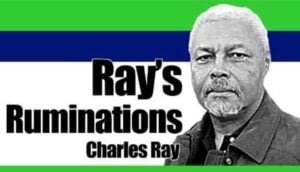
Have our sleeping habits been affected especially in this pandemic?
Women sleep longer than men, going to bed a bit earlier than men and waking up a bit later. Older people, likewise, sleep earlier than younger people, oftentimes dependent on solar cues or the time of sunrise and sunset. Moreover, the most well-rested people come from the Netherlands, while those living in Singapore and Japan log the shortest sleep duration.
These interesting findings are a result of an equally interesting way of analyzing the sleep habits of people – through the use of a mobile phone app known as ENTRAIN. It comes from the scientific term, “Entrainment,” which refers to “fully adjusting to a new time zone.”
In an article by Deborah Netburn, she disclosed that responsible for this app is Danny Forger, a biological mathematician at the University of Michigan and the senior author of the study on sleep patterns of more than 5,000 users of ENTRAIN.
According to Netburn, ENTRAIN, which is a free app, was designed by Olivia Walch, a graduate students in Forger’s group. Launched two years ago with the intention to help users overcome jet lag, Forger used “complex algorithm” in his research. “Essentially, the app tells people when to expose themselves to light and when to avoid it to minimize the effects of jet lag,” said Netburn in her article, adding that it “can cut jet-lagged time in half.”
Forger’s study had its share of limitations. Since the app users sent their sleep data to the laboratory, they were very regulated and did not consider other real-life stressors such as family members, peers, work-related concerns, and other day-to-day problems that tend to worry many people and, thus, keep them sleepless.
Moreover, as Forger was quoted by Netburn in her article, if the research would include the above-mentioned factors, “it would cost about $ 20,000 per individual [to get this type of information] and we don’t have that kind of budget.”
Forger’s study, which was done collectively, was published recently in Science Advances where they used the data from ENTRAIN to determine the social and solar cues that influence people’s sleeping and waking hours. The average schedule of the app users, as logged, was seven to eight hours of sleep a night with a mean of 7.88 hours.
As to the number of sleeping hours according to age and gender, these habits are more evident among males and females between 30 and 60 years old. As people grow older, they tend to follow a particular sleep regimen, sleeping only during certain times of the day because they become more sensitive to solar cues.
Younger people, especially those who are studying, tend to have an erratic schedule in their sleep patterns, providing no restrictions as to their sleeping and waking hours.
In the United States, as Forger’s study had found, the average sleep duration among the app users was 7.87 hours, just a few minutes more than Singaporeans and Japanese who had the shortest sleep duration at 7.24 hours a night. This is in contrast to people in the Netherlands who logged the longest sleep duration at 8.12 hours of sleep a night.
As we have always been admonished even as children, the ideal sleep duration is at least 8 hours a night.
Surprisingly, according to Amy Cochran, an assistant professor at the University of Michigan who was also part of Forger’s team, solar cues (the time of sunrise and sunset) remain to have an effect on when people wake up compared to when they go to bed.
“Later sunrises (after 6:30 a.m.) were associated with later wake times and bedtimes. Later sunsets were also associated with later wake times and bedtimes, but the effect of sunset on what time a person went to bed at night was weaker than what other patterns have predicted,” wrote Netburn in her article.
Forger added that they are soon launching a new version of ENTRAIN that will collect data from the app users to monitor the relationship between exercise and sleep. Forger acknowledged the help and cooperation of what he referred to as “citizen scientists” who willingly shared their sleep data to contribute to the initial results of their research. – NWI




